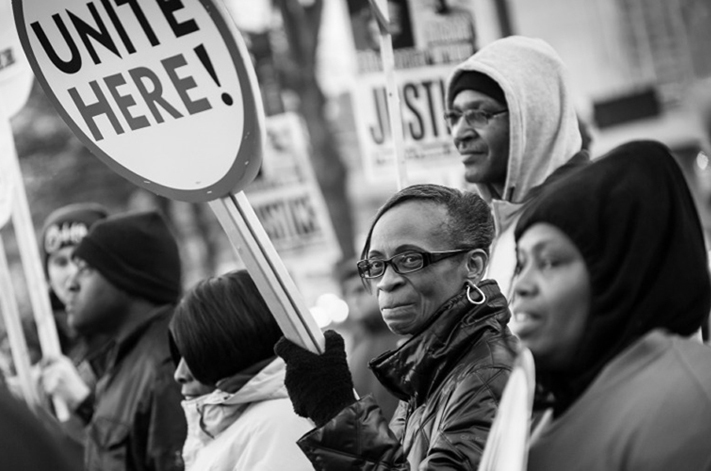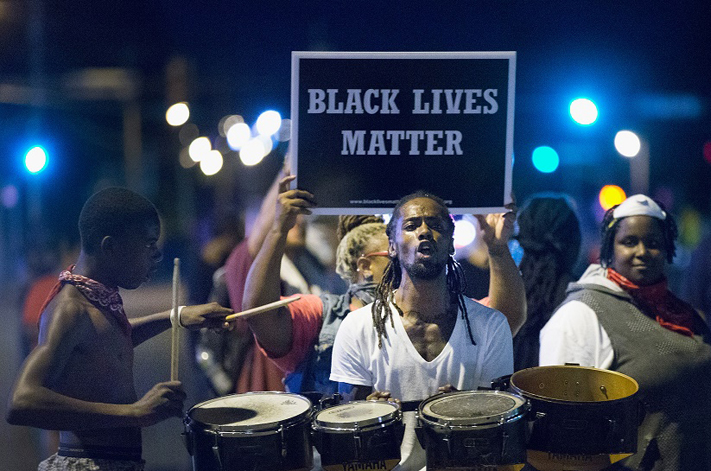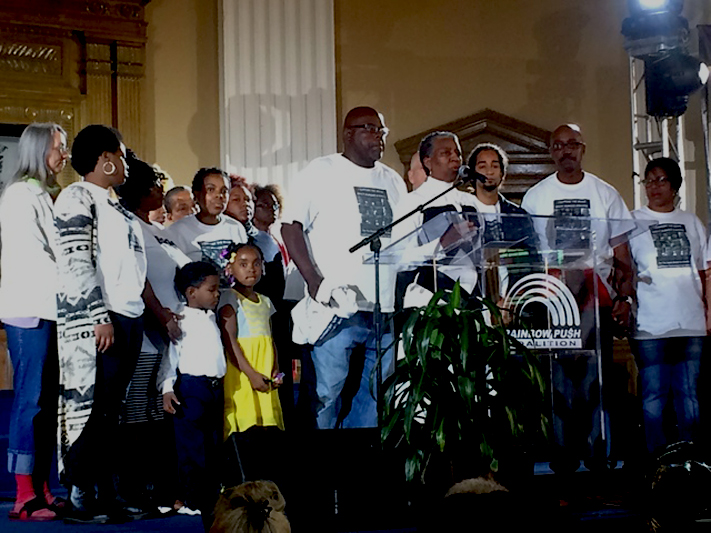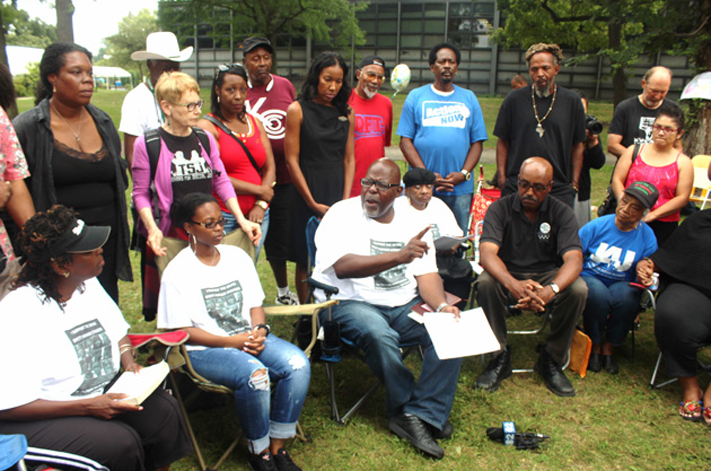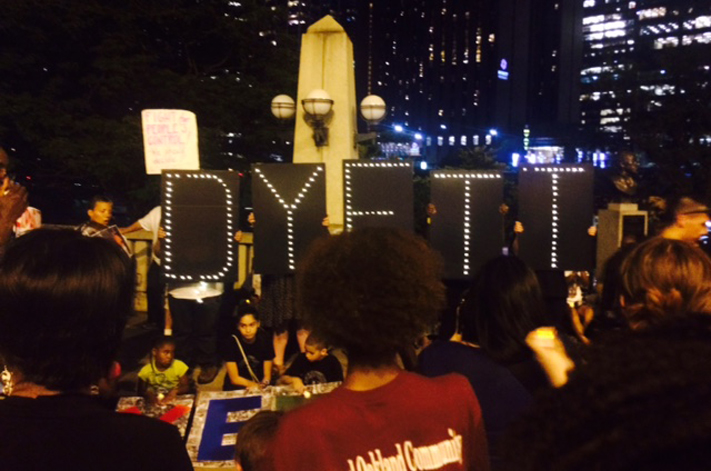Project Description
'That is a battle flag that flies in front of the Statehouse. That is a flag of rebellion. We would not be having this discussion if that were the flag of the Confederate States of America because that flag is not a symbol of hate. It’s long past time for that flag to come down. Removing the Confederate Battle Flag from the dome of the Statehouse and placing it in front, gave it the appearance of sovereignty. #embarrassing.'
The tragedy that occurred Wednesday night in Charleston, S.C., has engendered many personal emotions about race and reopened a conversation about a controversial and divisive symbol. Let us begin with several little-known but well-documented facts about that flag currently flying in front of the statehouse. It is not the Confederate flag. It is the Confederate “battle flag.”
Second, the version of that flag that flew on the statehouse dome from 1962 until 2000 was an elongated version of the battle flag and is also known as the “Tennessee flag.” In fact, it is the flag that Nathan Bedford Forrest used as a rallying symbol when he founded the Ku Klux Klan, and was popularized by that iconic movie, “Gone With the Wind.”
The real Confederate flag commonly known as the “Stars and Bars” contained a circle of 13 stars and three bars. For years, advocates tried to get the “battle flag” adopted as an official symbol but it was always rejected, even by the Daughters of the Confederacy.
Another little-known fact is that most South Carolinians who fought in the Civil War never fought under that flag. Many fought under the Citadel Flag which was similar to our current flag, but with a red rather than blue field, and a white crescent and palmetto tree.
So this notion that thousands of South Carolinians fought and died under that flag flying in front of the statehouse is a myth. Our legislators would do themselves and our state great proud if they would furl the “battle flag,” place it in a museum so all South Carolinians can become unified around symbols in which all of us are invested and to which all of us can pledge allegiance.
Congressman James E. Clyburn represents the sixth District of South Carolina. President Barack Obama has said he is, “One of a handful of people who, when they speak, the entire Congress listens.” As Assistant Democratic Leader in the 114th Congress, the number three Democrat in the House, James E. Clyburn is the leadership liaison to the Appropriations Committee, one of the Democratic Caucus’ primary liaisons to the White House and Chair of the recently formed House Democrats’ Democratic Outreach & Engagement Task Force.
When Clyburn came to Congress in 1993, he was elected co-President of his Freshman class and quickly rose through leadership ranks. He was elected Chairman of the Congressional Black Caucus in 1999, and his reputation as a leader and consensus-builder helped him win a difficult three-way race for House Democratic Caucus Vice Chair in 2002. Three years later, he was unanimously elected Chair of the Democratic Caucus. When Democrats regained the House majority in 2006, Congressman Clyburn was elevated by his colleagues to House Majority Whip.
As a national leader he has worked to respond to the needs of America’s diverse communities. He championed rural communities supporting the development of regional water projects, community health centers, and broadband connections. He has supported higher education by leading the charge for increased Pell grants; investing millions in science and math programs and historic preservation at Historically Black Colleges and Universities. He has encouraged economic development by securing funding for Empowerment Zones; investing in green technology development such as nuclear, wind, hydrogen and biofuels; and directing 10 percent of Recovery Act funding to communities 20 percent under the poverty level for the past 30 years. Clyburn was instrumental in advancing into law measures to resolve historic discrimination issues, significantly reducing the statutory disparity in cocaine sentencing and compensating African and Native American farmers who suffered racial discrimination under the USDA loan program.
Jim and Emily Clyburn have three daughters, Mignon, Jennifer Reed, and Angela Hannibal; two sons-in-law, Walter Reed and Cecil Hannibal; and three grandchildren, Walter A Clyburn Reed, Sydney Alexis Reed, and Layla Joann Clyburn Hannibal.
This piece was reprinted by EmpathyEducates with permission or license. We thank the Author, Congressman James E. Clyburn for his kindness, his awareness, and for the history lesson. We are extremely grateful for the Congressman’s strong voice, as we have been for years. We cannot begin to express our abundant appreciation for Congressman James E. Clyburn the many vital conversations.
#takeitdown Take it all the way down! The battle rages on!
While South Carolina Governor, Nikki Haley called for the removal of the Confederate 'battle flag' there remains opposition and 'sadness'. Sales of confederate merchandise continues. Also, at present, at least five other states recently had or still have symbolic references to the flag — Georgia, Mississippi, Alabama, Arkansas, Florida, and Tennessee. Five Southern states have legal protection for the flag — Florida, Mississippi, Georgia, South Carolina and Louisiana. Only in 2014 did California pass a bill that banned the state government from displaying or selling merchandise bearing the Confederate flag, which, as Charleston Mayor Joe Riley said, 'years and years ago was appropriated as a symbol of hate.'




